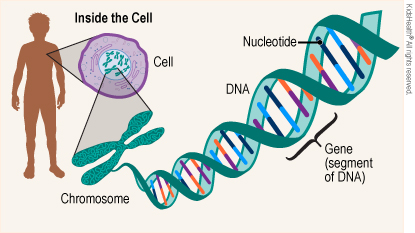Genes are the fundamental units of heredity, playing a crucial role in determining the traits and characteristics of living organisms. In this article, we will delve into the intricate world of genes, exploring their structure, functions, significance in inheritance and evolution, as well as their implications for medical advancements and ethical considerations.
What are Genes?
Genes are segments of DNA (deoxyribonucleic acid) that contain the instructions for building proteins, which are essential for the structure, function, and regulation of the body’s cells and tissues. Structurally, genes are composed of nucleotide sequences arranged along the DNA molecule.
Structure of Genes
A gene typically consists of several components, including promoters, exons, introns, and regulatory elements. Promoters are regions of DNA that initiate the process of transcription, where the genetic information is copied into messenger RNA (mRNA). Exons are the coding regions of genes that are translated into proteins, while introns are non-coding regions that are removed during mRNA processing. Regulatory elements control the activity of genes, influencing when and how much protein is produced.
Functions of Genes
Genes play diverse roles in the functioning of organisms, including:
Protein Synthesis
One of the primary functions of genes is to encode the instructions for synthesizing proteins. This process involves two main stages: transcription, where the DNA sequence is transcribed into mRNA, and translation, where the mRNA is translated into a specific sequence of amino acids, forming a protein.
Regulation of Biological Processes
Genes also regulate various biological processes by controlling the expression of other genes. This regulation occurs through complex networks of signaling pathways and feedback mechanisms, ensuring that cellular activities are finely tuned and coordinated.
Types of Genes
Genes can be classified into different categories based on their functions and properties, including:
Structural Genes
Structural genes encode the primary structure of proteins, dictating their amino acid sequences and overall functions.
Regulatory Genes
Regulatory genes control the expression of other genes, either by enhancing or suppressing their activity.
Mutant Genes
Mutant genes are altered versions of normal genes, resulting from genetic mutations. These mutations can have various effects on protein structure and function, leading to phenotypic changes in organisms.
Importance of Genes in Inheritance
Genes are the basic units of heredity, responsible for the transmission of traits from one generation to the next. The study of inheritance patterns and genetic variability has led to significant advancements in the field of genetics.
Mendelian Genetics
Mendelian genetics, named after the pioneering work of Gregor Mendel, focuses on the inheritance of traits governed by single genes. This classical approach has provided valuable insights into the principles of segregation and independent assortment.
Inheritance Patterns
Inheritance patterns can vary depending on the type of gene involved and its mode of inheritance, including dominant, recessive, and sex-linked traits.
Role of Genes in Evolution
Genes play a central role in the process of evolution, driving the diversity and adaptation of living organisms over time.
Natural Selection
Natural selection acts on heritable traits, favoring those that confer a reproductive advantage in a given environment. Genes that contribute to survival and reproductive success are more likely to be passed on to future generations.
Genetic Variation
Genetic variation, resulting from mutations and genetic recombination, provides the raw material for evolutionary change. It allows populations to adapt to changing environmental conditions and gives rise to new species over time.
Genetic Disorders
Genetic disorders are conditions caused by abnormalities in one or more genes, leading to impaired functioning and disease.
Single Gene Disorders
Single gene disorders, also known as Mendelian disorders, are caused by mutations in a single gene and often exhibit simple inheritance patterns.
Complex Genetic Disorders
Complex genetic disorders involve multiple genes and environmental factors, making their inheritance more complex and challenging to predict.
Gene Therapy
Gene therapy is a promising approach for treating genetic disorders and other diseases by modifying the expression of specific genes.
Definition and Purpose
Gene therapy aims to introduce functional genes into target cells or tissues to correct genetic defects or modulate disease-related pathways.
Types of Gene Therapy
There are several approaches to gene therapy, including gene replacement therapy, gene editing, and gene regulation techniques.
Ethical Considerations in Gene Editing
The development of CRISPR technology has revolutionized the field of gene editing, raising ethical concerns and ethical dilemmas.
CRISPR Technology
CRISPR (Clustered Regularly Interspaced Short Palindromic Repeats) technology enables precise editing of DNA sequences, offering unprecedented opportunities for treating genetic disorders and modifying traits.
Controversies and Debates
The use of CRISPR for purposes such as germline editing and enhancement raises ethical questions regarding safety, equity, and the potential for unintended consequences.
Future of Genetics
Advancements in genetic research hold immense potential for addressing global health challenges and improving human well-being.
Advancements in Genetic Research
Ongoing research efforts are focused on unraveling the complexities of the human genome, understanding gene-environment interactions, and developing innovative therapies and interventions.
Implications for Medicine and Society
The integration of genetic information into clinical practice has the potential to revolutionize healthcare delivery, personalized medicine, and public health strategies.
Conclusion
Genes are the blueprint of life, guiding the development, functioning, and evolution of all living organisms. By unraveling the mysteries of genetics, scientists are unlocking new possibilities for diagnosing, treating, and preventing genetic disorders, while also confronting ethical challenges and societal implications.
